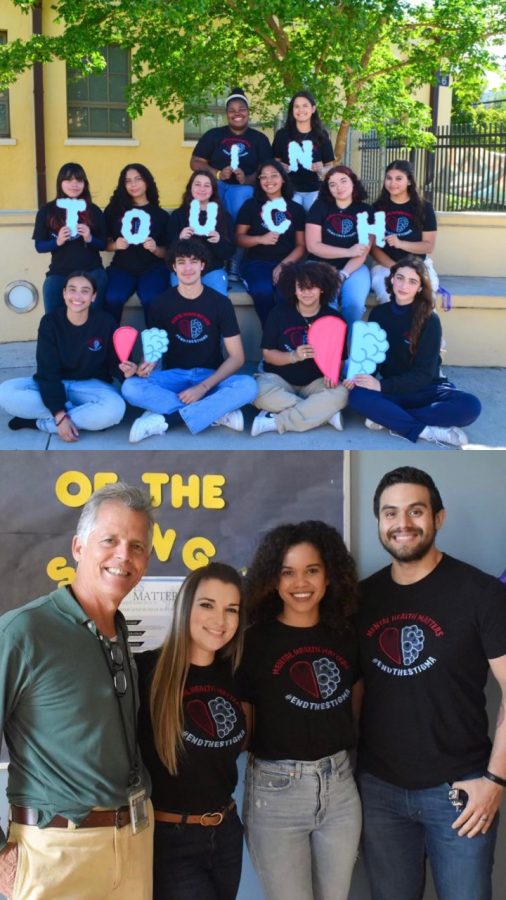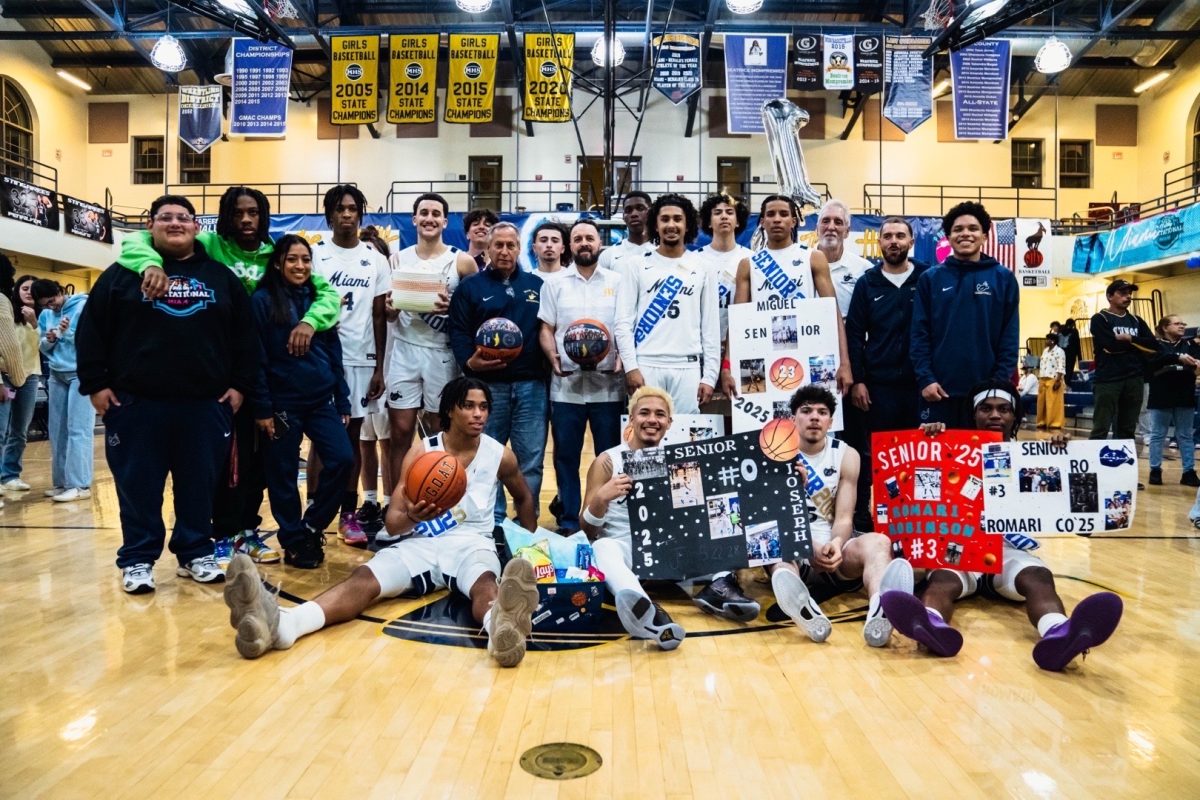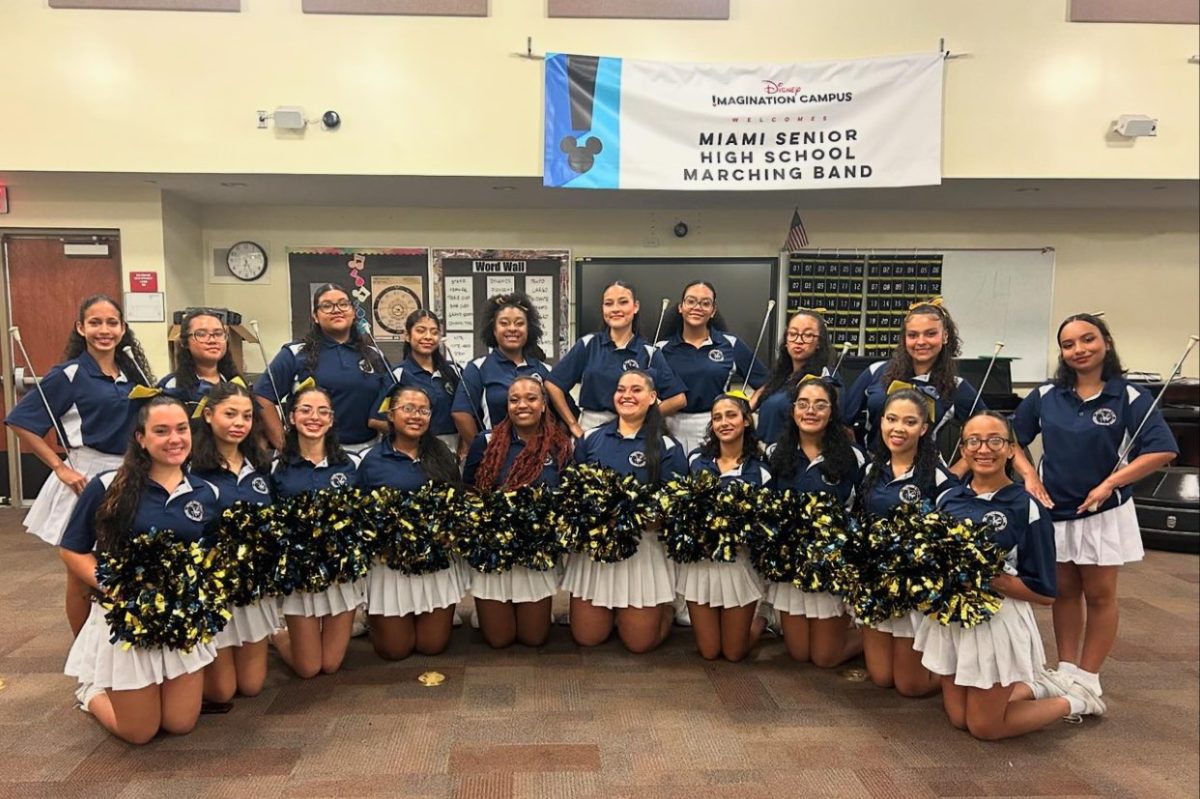Keeping In-Touch
Photo by Dany Torres
Top Photo: In-Touch Officers Bottom Photo: Guest speaker who spoke on mental health affecting topics.
March 7, 2023
Miami High is big and filled with lots of different people, some extroverts and other introverts. Introverts may have a harder time keeping in touch with their friends, peers, or teachers. Staying connected is particularly important to everyone’s mental health. Hence, Miami High starting their very own mental health club back in 2021, “In-Touch.”
Why is InTouch Important?
In-Touch is vital to Miami High, as it is the only club promoting the idea that mental health of every student is important. In-Touch has had many guest speakers who have covered common topics that affect the mental health of most students in high school. President Sofia Castellanos said, “In-Touch is important because students are able to gain knowledge but also relate to the different mental health topics we cover.”
How do the officers help?
In-Touch’s officers do their absolute best and listen to every student’s story. They are driven to alleviate stress or help resolve any problems Stingarees face. Historian Roberto Ramirez states, “We have monthly meetings with our members to talk about hard topics and to try and reduce the amount of stress the subject has caused. We are considerate of their emotions and make a comfortable space so that they can open up. We hosted a coloring activity social in hopes that it relaxes students in every way possible. We make sure that all activities we do promote the better being of Stings, rather than worsening the situation.”
Differences between InTouch and a therapist.
In-Touch is operated by students, rather than a licensed therapist. Students are prone to open up more to people their age rather than someone who is older and diagnosing them.
Member Samantha Lopez says, “I truly feel much more comfortable speaking to people who can just listen to me and give me advice on any challenges I might come across.”
Mia Olivero, In-Touch’s 2nd Vice President, states, “Our mental health club is different from a therapist because In-Touch is not a licensed therapist where we can diagnose people. We provide information, listen to struggles, and promote the beauty of living. We encourage people to come together and share their experiences towards topics like What a divorce does to students or Do cliques make you feel like an outcast. Having them share their experiences aloud and in one room demonstrates that they are not alone and that others can relate.”
Do Stingarees find this club Helpful?
Does In-Touch stay true to their mission of helping students with mental health struggles though? According to Public Relations officer, Nelissa Herrera, “Students do in fact find our club helpful because we have ways of teaching and talking about safe coping mechanisms and promoting self-care. Our guest speakers may even touch students’ hearts, which makes the students feel better about themselves and see the new light of their situations.”
A junior member who chose to remain anonymous, said that his first experience “I felt touched when Ms. G went ahead and made my situation relatable to her and shared her methods of coping. It allowed me to see that I am not alone. I have the resources and the people who love me.”
Solving the problem.
Whenever students do in fact feel endangered, In-Touch is there to help students by providing lots of resources. Ms. Luberto, TRUST Counselor and In-Touch Advisor, shares that in order for them to help you, the best start is to attend their meetings. “We host our meetings in classroom (7101) where we can be closer to our members while we are providing them with solutions about sensitive topics that bring out emotion,” she said, “We always invite a guest speaker to our meeting who has faced or is educated about the situation and are able to let the students know that we have the resources they might need.”
Prevention Lines
Drug Abuse National Helpline 1-800-662-4357
Gay and Lesbian National Hotline 1-888-843-4564
National Domestic Violence Hotline 1-800-799-SAFE
National Sexual Assault Hotline 1-800-656-HOPE (4673)
Suicide Hotline 1-800-SUICIDE (784-2433)
Youth Crisis Hotline 1-800-448-4663







Mayson Mendoza • Mar 7, 2023 at 1:14 pm
I love you Jose <3